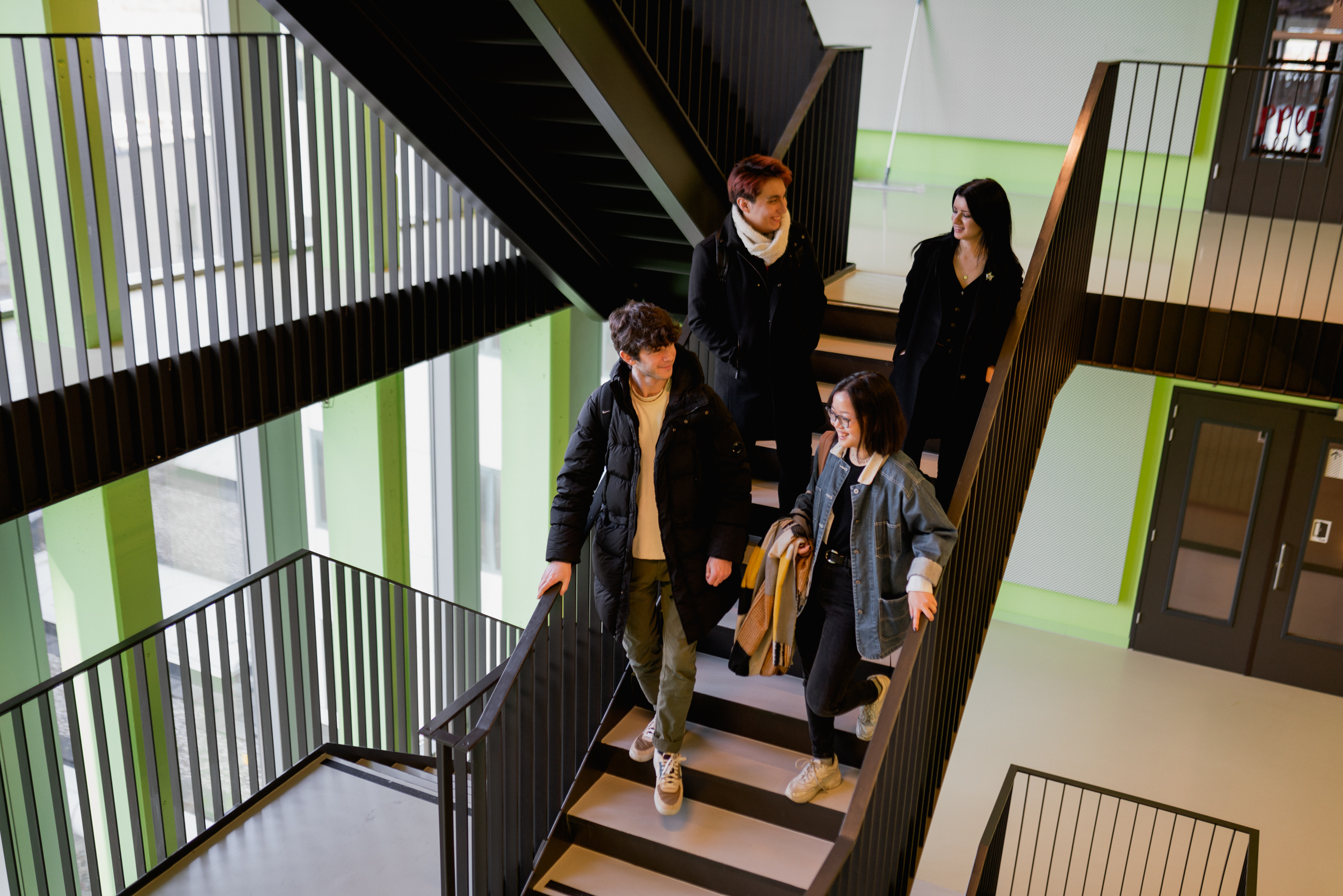
Interview with Pepijn van Neerijnen
Live Cases on Curaçao
The Community Service Learning Project Curaçao (hereafter: CSL: Curaçao) took place for the first time in fall 2021. During the 12 EC Bachelor elective, students work on current socio-economic challenges, ‘live cases’, within an international context: a very engaging form of Active Learning. We asked Pepijn van Neerijnen about the project, experiences and learning outcomes.
What does the “CSL: Curaçao” course entail?
The CSL: Curaçao course is a 12 EC bachelor elective. The course differentiates itself from other bachelor electives in the sense that we work on current socio-economic challenges within an international context. This international context is reflected within the research questions students work on, within the project teams themselves as they are composed of students from the UvA and students from the University of Curaçao (UoC), and within the involved lecturers which come from the UvA and the UoC (we are lucky to have the former prime minister Eugene Rhuggenaath as one of the involved lecturers for the upcoming academic year). The idea behind is that we want to maximize the learning effects on different levels: our students, our ‘clients’, the involved lecturers, and the involved institutions all should learn from these diverse perspectives.
Though external stakeholders in general value the feedback and insights they receive from our students when they work on ‘live cases’, in this context the perceived worth of the research projects is even bigger. Within Curaçao, high quality data on specific topics is often not available. Something that is common for small island economies that somehow must manage the complexities of a sovereign state with very limited resources. This presents policy makers, managers, and entrepreneurs with significant challenges. It is for this reason that our students are welcomed with open arms as they can provide invaluable information -mind you information that otherwise often would have been difficult or impossible to gather- contributing to the quality of decision making on Curaçao in the process. The first 4 weeks of the course itself start in Amsterdam. Here we hit the ground running with 4 lectures per week on small-island economies (the socio-economic challenges and opportunities of Curaçao in particular), an in-depth training on pragmatic problem-solving (the so called McKinsey method), several guest lectures, numerous hours of refining the research question, its underlying drivers, and working out a detailed workplan including setting up all the interviews (and other sources of data gathering) for the 2 weeks that we are on the island.
“The most important thing we wanted to accomplish with our CSL course was to have a lot of societal impact.”
Why did you choose Curaçao for this project?
The most important thing we wanted to accomplish with our CSL course was to have a lot of societal impact. Though Amsterdam and the Netherlands are not free from their own (socio-economic) difficulties, they are in a different league then those that can be found within the Caribbean Islands of the Kingdom of the Netherlands. Focusing on these islands made sense because the Netherlands has a historic, moral, as well as a legal obligation to help.
In several of these islands, the socio-economic situation is beyond worrying. Given the strong bonds between the Netherlands and Curaçao, the good network that we have on the island(s) with various stakeholders, starting the first international CSL course here only made sense: we knew we could have a significant impact and we knew we would receive a warm welcome. We hope we can build on the successes of the CSL: Curaçao project and expand operations to other islands within the Kingdom as well. For the academic year 2022-2023, we already decided to also work on several projects in Bonaire.
What are the experiences thus far?
These are extremely positive! The students really loved the experience all-around last year. They awarded the course with an 8.9, but more importantly, most of them indicated in their reflection reports that it had a profound influence on them, influencing them personally and professionally. Therefore, many students also suggested that they saw the course as the most meaningful course yet. Reflecting on the reasons for this perceived relevance, the students indicated that for many, this was the first time they were able to work on actual relevant challenges. Likewise, our other stakeholders were pleased as well. We have even more public and private partners lining up to work with our students in the upcoming year, including the ones from last year. In addition, this initiative was well received by the CvB and the teaching directors of the EB who have asked us to develop more CSL electives in the future.
“Students indicated that for many this was the first time they were able to work on actual relevant challenges.”
What are the most important learning outcomes?
The most critical skill our students learn during this course is how they can address very complex and ambiguous problems within a short time span while working together in a diverse team within difficult situations that they are unfamiliar with. This requires them to be creative, leverage the diversity within their team, deal with setbacks, transgress cultural differences, work in a structured way, and, crucially, to never give up! What we have seen is that last year all student teams rose to the occasion, all of them exceeding our expectations, leaving the course with the knowledge that can make a big difference in the world!
Want to get in touch to discuss and share? Reach out to Pepijn via e-mail or contact TLC at TLC-EB@uva.nl.





